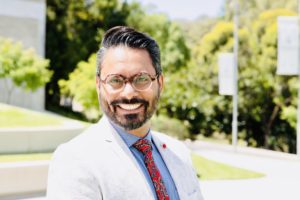
With hearing loss impacting one in six Australians but many unable to afford paying thousands of dollars for specialist exams and prescription hearing aids – a student-led aid bank at Flinders University is ensuring low-income families in Adelaide have access to hearing devices.
Supervised by a clinical educator at the Health2Go clinic on Flinders’ Sturt campus, eligible South Australians can make an appointment to visit student audiologists who will assess their needs, prior to fitting a hearing aid device and providing follow-up consultations at highly reduced rates.
The assistance program has been developed to help low-income earners requiring a hearing aid at a one-time reduced cost of $300 covering professional assessment, device fitting, any earmolds and batteries, with an additional pair of aids only costing $100.
The hearing aids have been made available for free by GN Hearing, one of the largest manufacturers and suppliers of diagnostic audiological instruments in the world.
After an initial assessment, device fitting and follow up appointments to ensure they’re working properly, patients can return for future consultations at standard rates set by the clinic.

Hearing aid program director and tinnitus researcher Professor Raj Shekhawat says with South Australians eligible for government assistance often left thousands of dollars out of pocket for a pair of hearing aids, this new program has been setup to directly assist low-income households in Adelaide.
“By allowing students to plan and run the appointments under appropriate supervision, this program enables a win-win scenario for low-income earners in need of hearing aids and students seeking hands on experience,” says Professor Shekhawat.
“This means families that would normally have to consider the affordability factor can rely on receiving a new and reliable device.
“This is an innovative education model because the clinic is completely student-led, with students responsible for planning each session and leading all appointments under the supervision of a clinical educator, so there’s no better way to make the transition into the workforce.”
Participants are required to hold an eligible health care card and be a low-income earner making below $30,000 for a single person, $45,000 for a couple and $60,000 for couples with a child.

